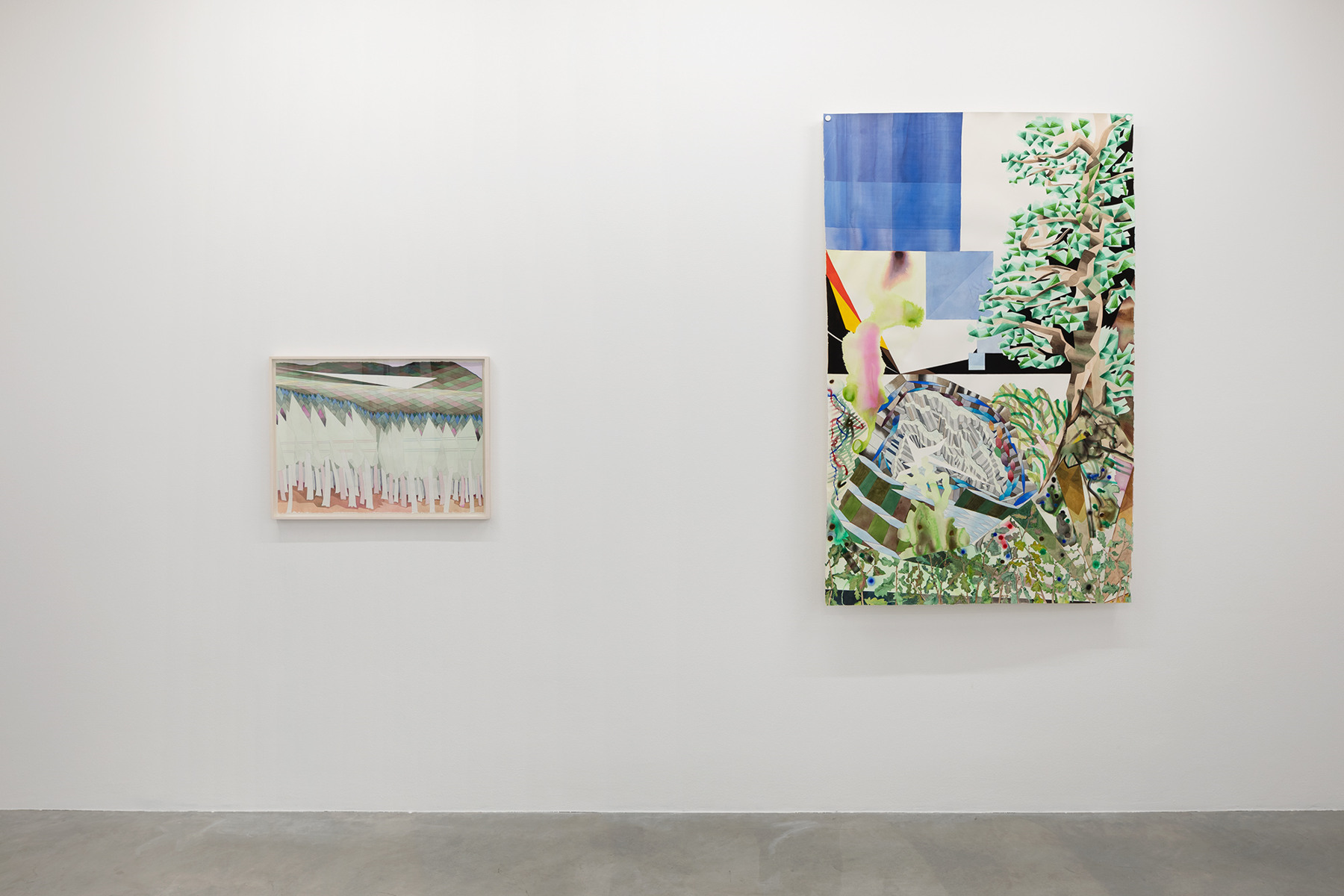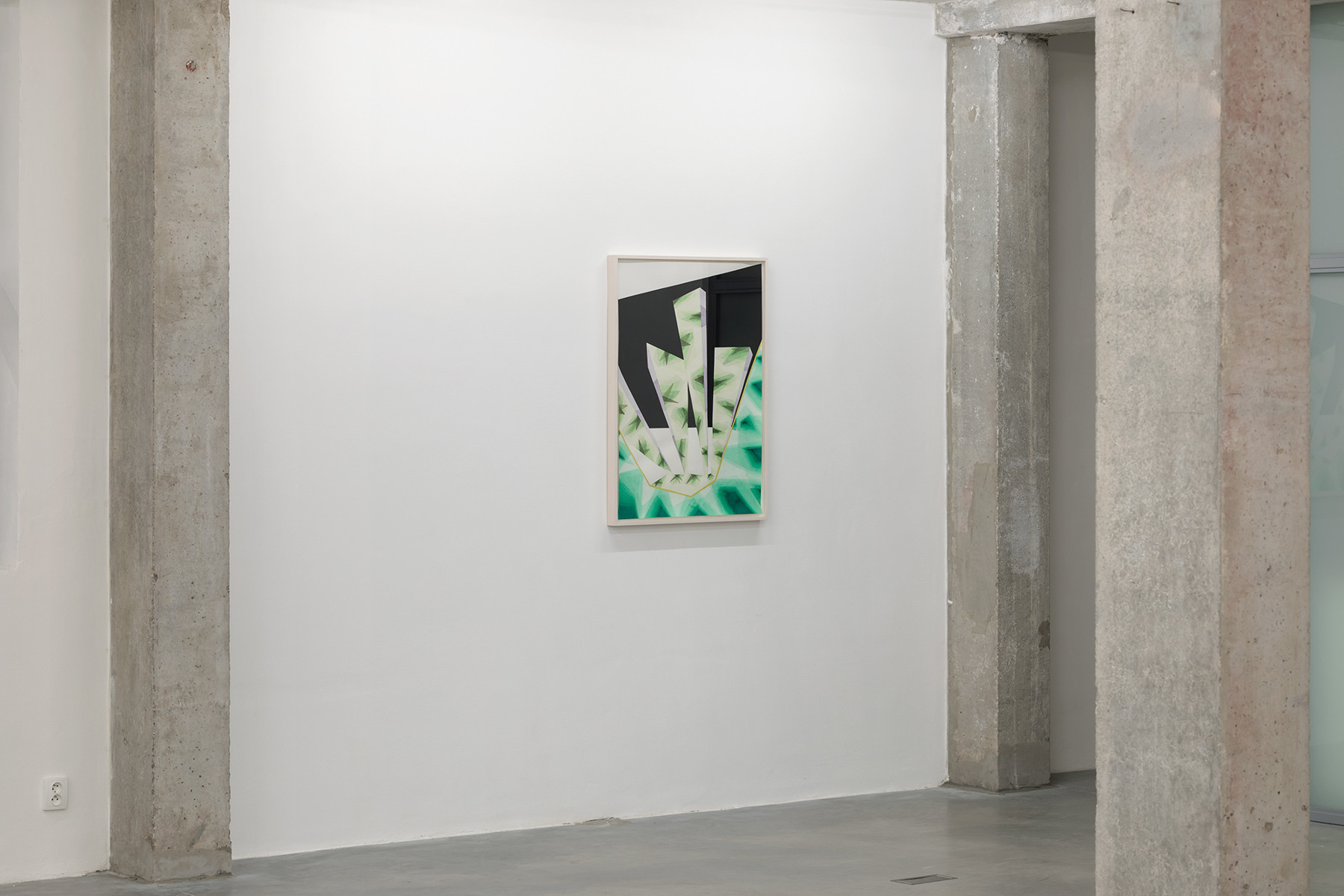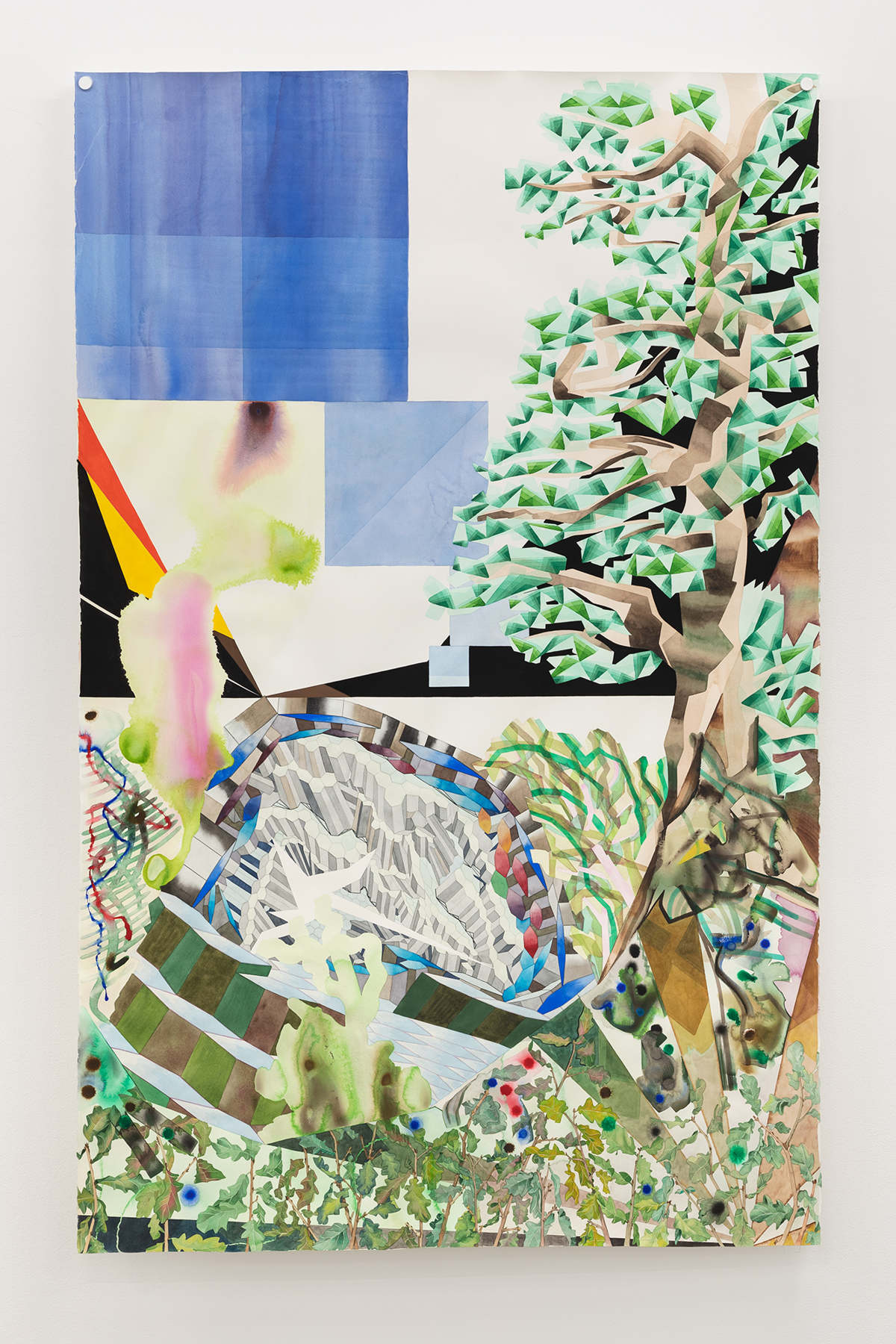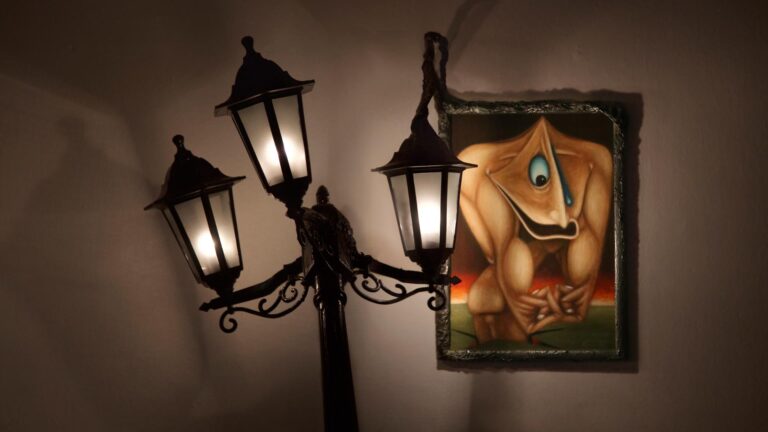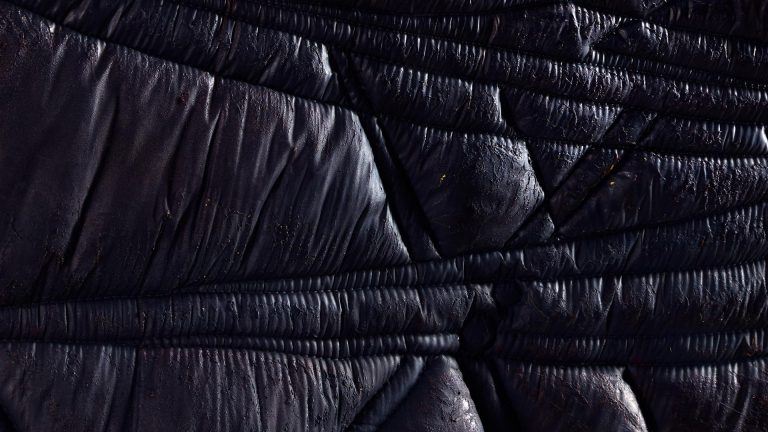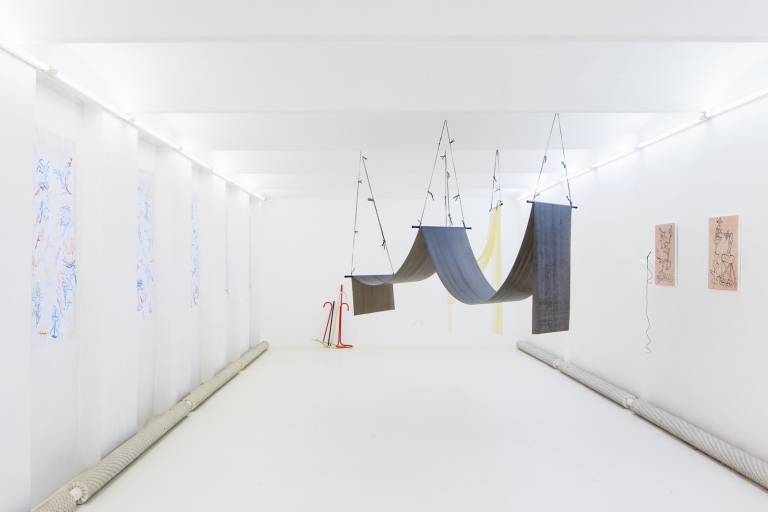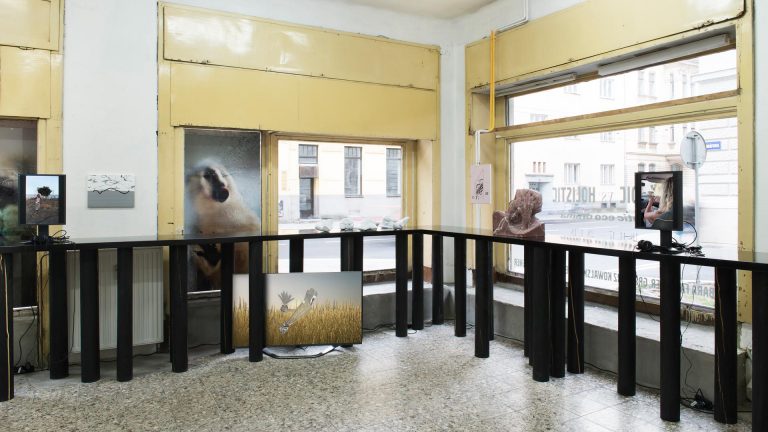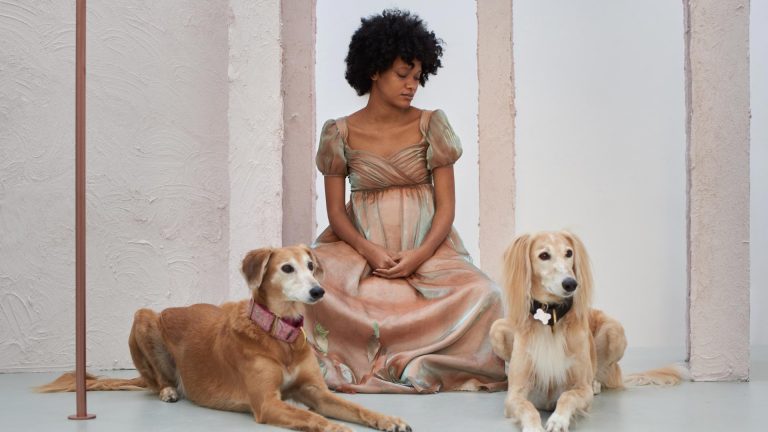Artist: Lukáš Karbus
Exhibition title: Black Opacity
Curated by: Cora Waschke
Venue: Polansky Gallery, Brno, The Czech Republic
Date: January 24 – March 7, 2019
Photography: all images copyright and courtesy of the artist and Polansky Gallery, Brno
That impenetrable darkness exudes iron chill, and over the iron breath a hesitant, dark voice can be heard from the depth of the building; “You who long to step over this threshold, do you know what awaits you?”
Ivan S. Turgenev: Threshold, 1878
The work of Lukáš Karbus is mostly known through his large-format watercolour paintings with crystalline structures, smooth colour transitions and detail representations of plants, with emphasis on colours and transparency. At the exhibition the artist surprises the audience with pictures in which bright permeability is partially separated from the impenetrable black of gouache.
Where no light breaks in, colours don’t exist, outlines are indistinguishable. Impenetrable darkness, like a black wall blocking the way, is placed in contrast with the depth of space. Yet to this black opacity Karbus sets an opening, that could be a way out or a wrong path. The common denominator of all the pictures on display is a wedge-shaped threshold in their bottom section. The viewer can thus peer into another space, a strange world or, as the artist likes to put it, “The observer can see ‘theatre, the world, reality’.”
These views from rugged vantage points refer to one of the most famous paintings of romanticism, Chalk Cliffs on Rugen by Caspar David Friedrich. A frame of craggy rocks offers a view into the depth of the sea flattened by the picture. The recurrent motif of man on the threshold of irreconcilable opposites in Friedrich’s works symbolises existential experience of life and death. In contrast, with his contemporary Johann Wolfgang Goethe the threshold mediates between consciousness and unconsciousness, between sleeping and being awake.
In Karbus’s work the motif of threshold opens diverse spaces and states of being. Shining brightness spreads over a dark horizon to a brownish screen folding at the bottom, seemingly clamped by a flowing stream. Another picture reminds on an aircraft view, whose perspective is constantly shifting and the inclined window frame does not provide a secure grip. Then again, the viewer seems to stand at the entrance of the exhibition. And now finally the representations seem so reduced and stylized as if they were virtual worlds where crossing the border is already in the promise of digital generating.
By incorporating the motif of a threshold, view-through and plane, Karbus’s paintings of landscapes and abstract images have diverse art historical references from romanticism to suprematism. The contrast between transparency and opaqueness also indicates the current theme of immersion in virtual reality.
In Karbus’s work, entering a different world always appears to be a transition into a different state of being, with all its promises and dangers.





